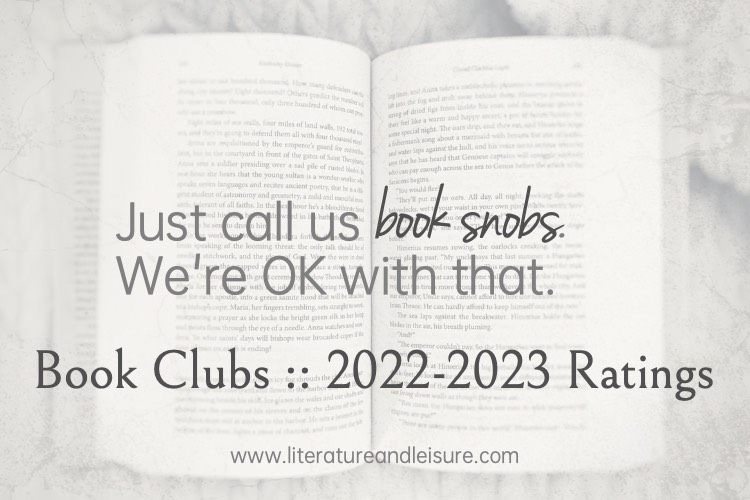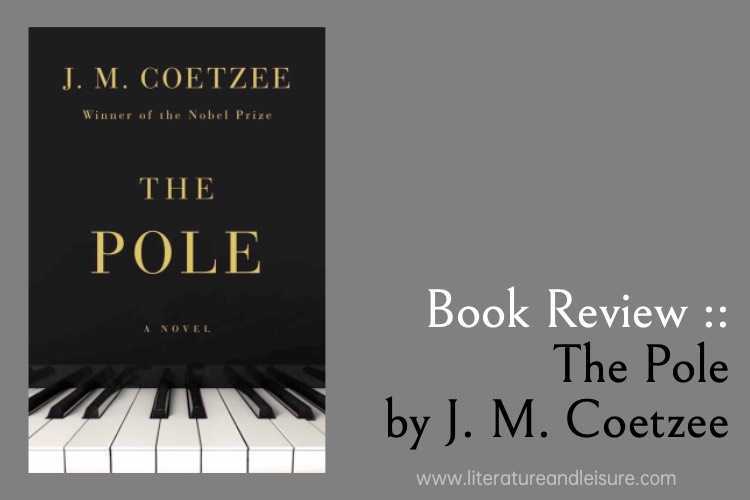 One of my good friends and fellow book lovers posed an interesting thought to me the other day: is there a trend in current fiction to create characters who are so flawed that readers lose interest?
One of my good friends and fellow book lovers posed an interesting thought to me the other day: is there a trend in current fiction to create characters who are so flawed that readers lose interest?
This idea came to her after reading two books that, from their descriptions, she should have loved. However, she hated them. In an attempt to provide ‘depth’, the authors had given the characters – all of them – such extreme flaws that she (as the reader) couldn’t empathize with any of them and so was left not really caring about how the story ended.
I think she may be on to something. As I think about some of my recent reads – even from authors I’ve really enjoyed at times like Picoult and Shreve – I think this is the case. Take Picoult’s Keeping Faith and Perfect Match (Match reviewed here). In both stories the mothers seem to be the ones we are supposed to cheer for (father in Faith is obnoxious and a doormat in Match), but the mothers’ actions are reckless and selfish. And so along the way it is easy to quit caring for them.
Same goes for Shreve’s Testimony that I reviewed here. None of the adults, none of the students, are portrayed in a way that you’re really ‘pulling’ for them. If you feel any sorrow at the end of the book, it is for the quiet town and the disruption to it.
In a follow-up discussion (add good friend / book lover #2), we talked about what then separates these flawed characters who we don’t feel for, from the flawed characters who we do love and care about. I’m not sure that we completely answered this question, but part of it (for me) has to do with why the sin? and why the error? and were these lapses part of a necessary journey to redemption?
Let’s discuss.





I agree the "character too flawed" is definitely a trend and one I do not embrace for many reasons.
I read to "escape" and while I don't always need a happy ending and sunshine and roses, it is nice, for lack of a better word, for there to be some ray of light in the darkest book, some redeeming trait in the most awful character.
What makes a book resonate with me is my ability to empathize with the central character(s). And if they are flawed, even deeply flawed, and working on their demons, or there is a compelling reason for them being broken, then that plays better. Bel Canto is a great example of flawed characters who are "allowed" to show their "good sides," even if it is for a short period and in a forced situation.
But characters completely and utterly devoid of morals and remorseless for their actions are just…wrong. And, honestly, this trend of stacking an entire book with assholes ruined many a book of late for me, as well.
You're right about Bel Canto…which I loved. There is big difference between a "good" character who screws up and a character with flaws who grows and shows beauty in action. This is the case with my current read "The Book Thief." More about that when I review it, but I think b/c this has been on my mind, it is making me pay more attention to my reading.
What an interesting question to ponder. This actually sums up for me – though I didn't realize it until reading it here – why I get so annoyed at so many books. I often find myself wondering why Character A did something so unbelievable that I just can't get beyond it. I may finish the book in hopes that the author “rights” him or herself, but I am often disappointed. I do think this is one of the fundamental things that separates good fiction from bad. Pretty much I'll go on any journey with a character as long as I'm shown some respect as a reader. I don't have to even like a character to take the journey… mostly I want to feel like the author knows what he or she is doing & that they know I'm paying attention as a reader.
I always have to wonder though how much of a role/influence an editor has over a book. Sometimes I wonder if I should be blaming the author, the editor, or the publisher.
Here's a question that naturally follows: Why do so many bad books get published? Of course, one man's trash is another man's treasure. Frankly, if I’m being honest, most days I'm just happy people are reading, even if it's not necessarily what I consider good.
Excellent points, Stacie & I tend to agree with you about bad fiction – I would rather people read it than not read at all.
Interesting point about respecting the reader. I think the issue is even deepter than that. I think we have writers who aren't very smart and so they don't even think about what a smart reader wants.
Relevancy. That's the key. The flaws need to be relevant to the character's growth.
This is one of my biggest gripes with Chick-Lit. I can't read another page of mind-numbing garbage about some vapid adultress whom we are supposed to empathize with! Something Borrowed is the first book that comes to mind. I was embarassed that women were even portrayed this way! I wasn't sure who was worse, the cheating best friend, or the "I'm so shallow, aren't I cute?" bride-to-be.
Then again, maybe someone out there is looking for a "leave your brain at the door" type of book. I'm all for entertainment, and I try not to be a book snob. Hey, I read the Sookie Stackhouse series!
Now, an example of a tragically-flawed character done right? April from Revolutionary Road. She was flawed, but so was her life, her marriage, her husband, and the society around her. Here is a woman with relevance and depth. Beautifully written and painfully real, April's character is one that many women could identify with even in the year 2009.
I agree with Elisabeth — it's all about the intelligence of the writing. Are books "dumbing down" to meet the needs of a certain demographic that gravitates toward reality shows and MySpace profiles?